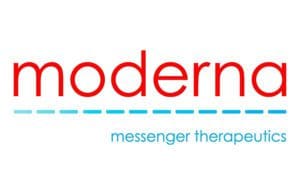 Moderna’s (NYSE:MRNA) bivalent booster COVID-19 vaccine candidate, mRNA-1273.211, bested its first-generation mRNA-1273 vaccine in a Phase 2/3 study.
Moderna’s (NYSE:MRNA) bivalent booster COVID-19 vaccine candidate, mRNA-1273.211, bested its first-generation mRNA-1273 vaccine in a Phase 2/3 study.
The study compared the neutralizing antibody levels generated from both vaccine boosters. The mRNA-1273.211 vaccine booster candidate offered superior performance against all variants of concern, including omicron.
The company notes that the mRNA-1273.211 booster outperformed the first-generation vaccine for six months.
In particular, the next-gen products led to a 2.20-fold boost in neutralizing antibody titers against omicron with the mRNA-1273.211 booster dose relative to the mRNA-1273 booster dose at 1 month. At 6 months, the new booster candidate led to a 2.15-fold increase in neutralizing antibody titers compared to the current booster.
mRNA-1273.211 is based on the beta variant, which shares some mutations with the omicron variant, whose subvariants continue to dominate the world.
The novel booster’s safety profile appeared to be similar to the company’s authorized mRNA-1273 booster, which is available in a 50 µg dose.
The data from the latest research has been published as a preprint.
The primary series using the mRNA-1273 makes use of a 100 µg dose.
Moderna is also developing a booster candidate known as mRNA-1273.214 with more omicron-specific mutations. That vaccine is currently in a Phase 2/3 study.
After comparing the performance of the mRNA-1273.211 and mRNA-1273.214 candidates, the company will select one for potential use as a booster for fall in the Northern Hemisphere.
“Our latest bivalent booster candidate, mRNA-1273.214, which combines the currently authorized Moderna COVID-19 booster with our Omicron-specific booster candidate, remains our lead candidate for the fall 2022 Northern Hemisphere booster,” said Stéphane Bancel, Moderna CEO, in a news release. “We look forward to sharing initial data on mRNA-1273.214 later in the second quarter. We believe that a bivalent booster vaccine if authorized would create a new tool as we continue to respond to emerging variants.”
The company continues to develop a range of other COVID-19 vaccine candidates that incorporate mutations from variants of concern.
MRNA shares were up almost 7% to $147.06 in mid-day trading